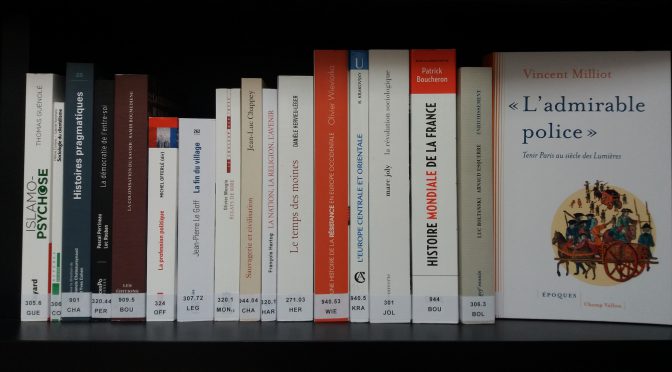
The new edition of CEFRES Review of Books will take place on Thursday 14 December at 5 pm at CEFRES library.
Join us for a discussion around the latest publications in humanities and social sciences from France.
This informal meeting gathers CEFRES team, the library readers, and professionals from libraries and publishing. The aim of our Review of Books is to make better known the publishing landscape in humanities and social sciences. Each book is presented in no more than 10 minutes, so to stress its originality and stakes.
So far, the following presentations are announced:
– Luc BOLTANSKI, Arnaud ESQUERRE : Enrichissement. une critique de la marchandise (Gallimard), by Mihai-Dan Cîrjan
– Christophe CHARLE, Laurent JEANPIERRE : La vie intellectuelle en France (Seuil), by Tomáš Nakladal
– Christian INGRAO : La promesse de l’Est (Seuil), by David Emler
– Sarah MAZOUZ : La république et ses autres (ENS Editions), by Florence Vychytil-Baudoux
– Michel OFFERLÉ : La profession politique (Belin), by Michel Perottino
– Jean-Claude SCHMITT : Les rythmes au Moyen Age, by Paul-Antoine Méteier
– Catherine SERVANT (dir.) : Les héritages culturels du XIXe siècle sous les régimes communistes. (Publications des Langues O éd.), by Petr Kyloušek
You can peruse and download the list of the library’s latest acquisitions and book a book at the following address: claire@cefres.cz.
Where: CEFRES Library, Na Florenci 3
Language: French
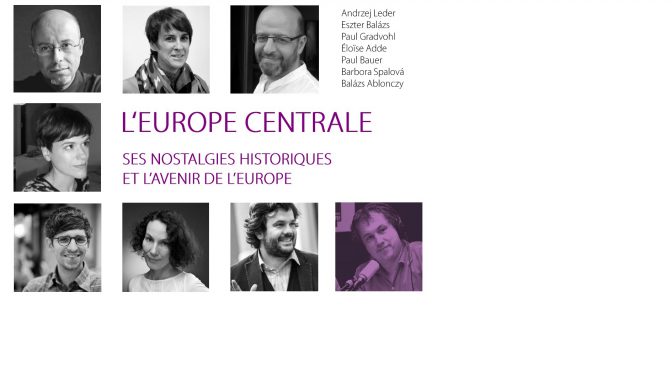
CEFRES is thrilled to welcome the team of the French radio show devoted to history La Fabrique de l’Histoire for a series of four shows (to be broadcast in December 2017 on France Culture radio station) dedicated to East-Central Europe. A roundtable led by radio host Emmanuel Laurentin gathering four historians will tackle East-Central Europe relationship to nostalgia, the past and the future of Europe. The roundtable will follow a workshop on “The Political Uses of the Past and Collective Memory in Central Europe”.
Both the workshop and the roundtable of the Fabrique de l’Histoire are open to the public!
Where: Kino 35, IFP, Štěpánská 35, Prague 1
Times: 3 pm-6:30 pm for the workshop, 7-8 pm for the roundtable of the Fabrique de l’Histoire
Organizer: CEFRES, with the support of French Institute in Paris (programme “New intellectual scenes”) and of the French Institute in Prague
Language: French
7 pm–8 pm
ROUND TABLE HOSTED BY EMMANNUEL LAURENTIN (France Culture)
- Balázs Ablonczy (Hungarian Academy of Sciences)
- Pauli Bauer (Charles University)
- Paul Gradvohl (University of Lorraine)
- Barbora Spalová (Charles University)
3 pm—6:30 pm
WORKSHOP — Utilisations politiques du passé et mémoire collective
Éloïse Adde (Luxemburg University) : Mythe et actualité de Charles IV
Eszter Balázs (János Kodolányi & Kassák Museum) : La révolution de 1956 soixante ans après : comment la politique mémorielle veut façonner à son image la mémoire collective
Andrzej Leder (Polish Academy of Sciences) : La révolution des somnambules. Les années 1939-1956 en Pologne
Barbora Spalová (Charles University) : L’économie morale des mémoires religieuses en République tchèque
Balázs Ablonczy (Hungarian Academy of Sciences) : Mémoires superposées : guerre, sortie de guerre, paix
Paul Bauer (Charles University) : Nostalgie et mémoires allemandes dans les Pays tchèques
Paul Gradvohl (University of Lorraine) : Nostalgies socialistes, nostalgies du socialisme (Hongrie, Pologne)

Selling Souls: Trafficking German Migrants, Europe and America, 1648-1780
A lecture by William O’Reilly (Trinity Hall, University of Cambridge)
Time & Venue: 5:30 PM at CEFRES (Na Florenci 3, building C, 3rd floor – conference room)
Language: English
Organizer: Veronika Čapská (FHS UK)
 William O’Reilly is a senior lecturer in Early Modern History at the University of Cambridge, associate director at the Centre for History and Economics and full-time fellow at the Institute for Advanced Study in Budapest. He has worked on a range of topics in early modern European and Atlantic history, and is particularly interested in the history of European migration, colonialism and imperialism. He serves on the International Advisory Boards of the Historical Journal and Themes in Migrations.
William O’Reilly is a senior lecturer in Early Modern History at the University of Cambridge, associate director at the Centre for History and Economics and full-time fellow at the Institute for Advanced Study in Budapest. He has worked on a range of topics in early modern European and Atlantic history, and is particularly interested in the history of European migration, colonialism and imperialism. He serves on the International Advisory Boards of the Historical Journal and Themes in Migrations.
Abstract:
Selling Souls investigates the history of seventeenth and eighteenth-century German emigration to North America and Central and Eastern Europe through the actions of Seelenverkäufer, the ‘soul-selling’ traffickers who recruited and escorted migrants and who bridged divides in geography, in literacy and illiteracy, in economic security and insecurity, in freedom and servitude. As the fashion for emigration grew in Europe after the great depopulation and general upheavals of the Thirty Years’ War, so did the proclivity of recruiters. It was virtually impossible in seventeenth and eighteenth-century Europe to contemplate emigration without coming under the influence of an agent or advertiser. They were scoundrels and saviours in differing measure and without their actions the entire process of early-modern migration would have been inconceivable. As such, they laid the groundwork for subsequent mass migration in the nineteenth and twentieth centuries.
Selling Souls considers the role of colonist recruiters in the creation of a complex network of communication that encompassed an expansive Atlantic World, from Pennsylvania to Transylvania. Without the actions of migrant recruiters, informal webs of contact and communication could not have been maintained among migrants and, by extension, further migration might not have taken place.
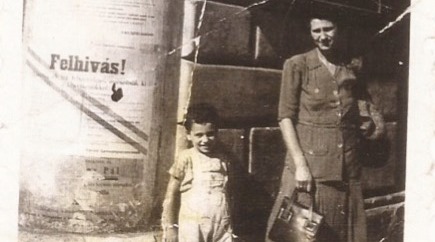
A lecture by Éva Kovacs (Vienna Wiesenthal Institute for Holocaust Studies) in the frame of the seminar on Modern Jewish History of the Institute of Contemporary History (AV ČR) and CEFRES in partnership with the Masaryk Institute (AV ČR).
Where: CEFRES library, Na Florenci 3, 110 00 Prague 1
When: from 5 pm to 6:30 pm
Language: English
In the past two decades, thanks to the opening of the digital collections in the United States, Israel, and Europe, the usage of oral history sources became attractive in historical research. These archives hold an enormous number of testimonies, which makes the research easier and faster, but, on the other hand, raises serious methodological questions. Meanwhile, the last survivors who can still give testimonies are passing away – the oral history sources are turning into „normal” archival sources soon. These new developments are challenging the history-writing on the Shoah.
Our case study deals with the everyday life of approximately 15 thousand Hungarian-Jewish deportees who were forced to work in Vienna and its vicinity in 1944-45. The presentation will focus on the Quellenkritik (source criticism) and methodology of using large oral history archives to explore insufficiently documented historical subjects.
Read more about the colloquia!
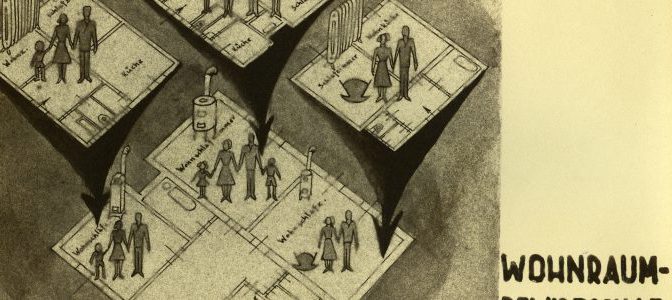
A lecture by Benjamin Frommer (Northwestern University, Evanston) in the frame of the seminar on Modern Jewish History of the Institute of Contemporary History (AV ČR) and CEFRES in partnership with the Masaryk Institute (AV ČR).
Where: CEFRES library, Na Florenci 3, 110 00 Prague 1
When: from 5 pm to 6:30 pm
Language: English
By the time the Jews of Bohemia and Moravia boarded transport trains for the Nazi ghettos in Theresienstadt and occupied Eastern Europe, many, if not most, of them had already been forced to leave their homes and even their home towns. Starting with flight from the occupied Sudetenland in the fall of 1938, the region’s Jews frequently and repeatedly moved over the following half decade. Sometimes they did so voluntarily in an attempt to facilitate emigration or to escape areas with particularly intense persecution. Increasingly, however, Jews found themselves subjected to orders of eviction and resettlement that aimed to make buildings, districts, and even whole towns /Judenfrei /in the name of Nazi policy and to address an alleged “housing crisis.” Scholars have focused on the seizure of the most valuable properties and their redistribution to Germans, but the proponents and beneficiaries of evictions and resettlement throughout the Protectorate included far more than just the occupiers. For the victims, forced migration contributed to their impoverishment and their isolation and, thus, to their ultimate deportation from the Protectorate altogether.
Read more about the colloquia!
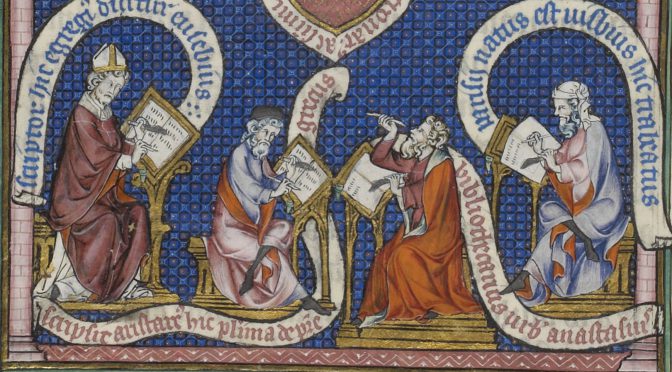
Transfer, Translation and Transmission of Knowledge in Monastic Networks. Research Directions and Approaches in the Study of Medieval and Early Modern Patterns
A keynote speech by József Laszlovszky (Department of Medieval Studies, Central European University, Budapest)
Time & Venue: 5:30 PM at Špork Palace, Hybernská 3, Prague 1, room nr. 303
Language: English
 József Laszlovszky is a full time professor of the Department of Medieval Studies at the Central European University and a guest lecturer at the Department of Medieval and Postmedieval Archaeology at the Eötvös Loránd University. His research fields cover archaeology, archaeozoology, material culture and everyday life with a strong focus on ecclesiastical, urban and enomic history. He is the director of the Cultural Heritage Studies Program at CEU.
József Laszlovszky is a full time professor of the Department of Medieval Studies at the Central European University and a guest lecturer at the Department of Medieval and Postmedieval Archaeology at the Eötvös Loránd University. His research fields cover archaeology, archaeozoology, material culture and everyday life with a strong focus on ecclesiastical, urban and enomic history. He is the director of the Cultural Heritage Studies Program at CEU.
Abstract
Interactions and exchanges (spiritual and material) between monastic communities have been discussed in monastic studies for a very long period of time: to some extent the history of monastic culture and the issue of mission by monastic groups cover all related research questions in this context. Textual and church historical research of monastic rules, the movement and travels of leading monastic figures, the history of pilgrimages, the transmission of texts between monastic scriptoria, and the study of monastic libraries were typical research directions in these previous studies. More recently, the concept of knowledge transfer was introduced as a holistic approach and more emphasis has been given to the problem of communication. The question is not only about the object of the knowledge transfer, but more about the ways and means of interactions between the monastic communities.
By using the results of a joint research project carried out by the FOVOG (Research Centre for the Comparative History of Religious Orders) in Dresden and the Department of Medieval Studies at CEU (Budapest) during the last some years this paper offers an overview of the new research directions in monastic studies. It will discuss the key concepts of these studies, such as the transmission of ideas, objects and complex knowledge packages in monastic circles. These examples allow us to understand better the general problem of monastic life. The combination of a written regula and of a set of unwritten rules and practices is the key factor in establishing a new monastic community. Research results will be presented on the issue of monastic architecture, technological innovations and of „monastic business management”. Recent studies in the field of such questions in the medieval and early modern period have already demonstrated that the traditional boundaries between the different monastic orders should not be taken as clear cut division lines and more interaction can be detected in this respect. By introducing new research concepts into these fields of studies, such as the concept of monastic landscape, a more global (international) research direction can be developed. At the same time, local aspects and influences can also be taken into consideration, and for these the issue of siting or site selection in the process of a new monastic foundations play a crucial role.
Instead of a panoramic and general overview of all these questions, the paper will offer case-studies to highlight different research approaches and concepts, particularly in the context of material evidence for knowledge transfer and transmission of ideas.








